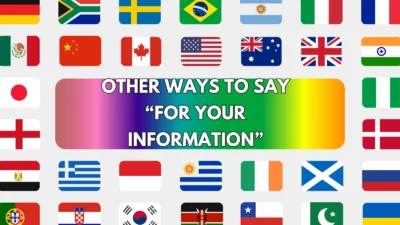Writing “good communication skills” on your resume is fine — but it’s overused and too general. Recruiters see it on almost every application, which makes it lose impact. Instead of stating it plainly, you can showcase your communication abilities through more specific, results-driven, and professional wording.
Below are 25 powerful alternatives to say “good communication skills” on your resume — each with meaning, examples, and ideal usage to help you stand out with clarity and confidence.
1. Strong Interpersonal Skills
Meaning: The ability to build and maintain positive relationships.
Example: Developed strong interpersonal skills through collaboration with cross-functional teams.
Best Use: When highlighting teamwork or leadership.
Tone: Professional, polished.
2. Excellent Verbal and Written Communication
Meaning: Skilled at both speaking and writing effectively.
Example: Delivered client presentations and drafted detailed project reports.
Best Use: Client-facing or communication-heavy roles.
Tone: Clear, confident.
3. Skilled in Active Listening
Meaning: Ability to understand others’ perspectives by listening attentively.
Example: Practiced active listening to ensure client needs were fully met during consultations.
Best Use: Customer service, HR, or management positions.
Tone: Empathetic, professional.
4. Articulate Communicator
Meaning: Someone who expresses ideas clearly and confidently.
Example: Recognized as an articulate communicator in both team and client interactions.
Best Use: Sales, public relations, or leadership roles.
Tone: Confident, elegant.
5. Strong Presentation Skills
Meaning: Capable of delivering engaging and informative talks or pitches.
Example: Delivered monthly presentations to executive stakeholders to summarize performance metrics.
Best Use: Roles requiring public speaking or client presentations.
Tone: Assertive, professional.
6. Effective Collaboration and Communication
Meaning: Communicates well while working as part of a team.
Example: Fostered collaboration across departments through clear and consistent communication.
Best Use: Team-based environments.
Tone: Cooperative, skilled.
7. Persuasive Communicator
Meaning: Skilled at influencing others through logical and emotional appeal.
Example: Used persuasive communication to secure key partnerships and drive project buy-in.
Best Use: Marketing, sales, or leadership positions.
Tone: Strategic, confident.
8. Clear and Concise Writer
Meaning: Capable of writing precisely and efficiently.
Example: Produced concise documentation improving cross-departmental understanding.
Best Use: Technical, content, or administrative roles.
Tone: Precise, professional.
9. Confident Public Speaker
Meaning: Comfortable and engaging when speaking to audiences.
Example: Presented at company-wide meetings to share quarterly results.
Best Use: Leadership, training, or PR roles.
Tone: Bold, self-assured.
10. Empathetic Communicator
Meaning: Understands and responds thoughtfully to others’ emotions.
Example: Handled customer feedback with empathy to enhance client satisfaction.
Best Use: Customer support, counseling, HR.
Tone: Warm, human.
11. Skilled Negotiator
Meaning: Uses communication strategically to reach mutual agreements.
Example: Negotiated contracts leading to a 10% reduction in vendor costs.
Best Use: Procurement, sales, or management roles.
Tone: Strategic, confident.
12. Cross-Cultural Communication Expert
Meaning: Effective at interacting with people from diverse backgrounds.
Example: Coordinated projects with international teams ensuring seamless global communication.
Best Use: Global organizations or multicultural environments.
Tone: Inclusive, adaptable.
13. Excellent Relationship Builder
Meaning: Establishes trust and rapport easily with others.
Example: Built strong client relationships that resulted in repeat business.
Best Use: Sales, HR, or customer-facing roles.
Tone: Professional, personable.
14. Strong Emotional Intelligence (EQ)
Meaning: Ability to communicate and collaborate with emotional awareness.
Example: Leveraged emotional intelligence to resolve team conflicts effectively.
Best Use: Leadership or HR roles.
Tone: Thoughtful, refined.
15. Experienced in Stakeholder Communication
Meaning: Skilled at conveying information to various stakeholders.
Example: Facilitated transparent communication between executive leadership and project teams.
Best Use: Corporate, project management, or executive settings.
Tone: Strategic, authoritative.
16. Team-Oriented Communicator
Meaning: Focused on group success and shared understanding.
Example: Encouraged open dialogue to maintain team cohesion and productivity.
Best Use: Collaborative environments.
Tone: Friendly, effective.
17. Skilled Facilitator
Meaning: Leads discussions and meetings productively.
Example: Facilitated weekly team sessions to align objectives and track progress.
Best Use: Leadership or project management.
Tone: Professional, organized.
18. Adept at Conflict Resolution
Meaning: Uses communication to manage disagreements constructively.
Example: Mediated workplace conflicts to maintain team harmony.
Best Use: HR, management, or leadership roles.
Tone: Balanced, calm.
19. Strong Storytelling Ability
Meaning: Uses narratives to communicate ideas and inspire.
Example: Crafted compelling brand stories that increased engagement by 30%.
Best Use: Marketing, branding, creative roles.
Tone: Creative, persuasive.
20. Customer-Centric Communicator
Meaning: Focused on understanding and serving customer needs.
Example: Communicated product benefits clearly to ensure customer satisfaction.
Best Use: Customer support, sales, or service industries.
Tone: Professional, empathetic.
21. Experienced in Report Writing and Documentation
Meaning: Proficient at creating professional written materials.
Example: Authored detailed reports simplifying technical information for clients.
Best Use: Administrative or technical roles.
Tone: Technical, precise.
22. Excellent Networking Abilities
Meaning: Builds and maintains professional relationships effectively.
Example: Expanded professional network through strategic industry events.
Best Use: Business development or leadership positions.
Tone: Confident, proactive.
23. Capable of Communicating Complex Ideas Clearly
Meaning: Breaks down complicated topics for diverse audiences.
Example: Explained technical concepts to non-technical stakeholders with clarity.
Best Use: Technical, management, or education roles.
Tone: Intelligent, approachable.
24. Open and Transparent Communicator
Meaning: Promotes honesty and clarity in discussions.
Example: Maintained open communication with clients to build long-term trust.
Best Use: Management or leadership positions.
Tone: Trustworthy, direct.
25. Collaborative and Engaging Communicator
Meaning: Encourages participation and openness in communication.
Example: Led brainstorming sessions that inspired innovative team solutions.
Best Use: Creative, leadership, or team-based roles.
Tone: Dynamic, motivating.
Conclusion
Simply saying “good communication skills” doesn’t fully express your abilities — showing how you communicate effectively is far more impactful. Each of these alternatives adds clarity, depth, and professionalism to your resume.
Whether you’re highlighting your listening, writing, negotiation, or presentation skills, choose phrases that demonstrate real results. That’s how you make your resume stand out and prove your communication skills in action.

Robat Hood is a creative writer and contributor at Saypadia, focused on explaining trending words, slang, and cultural phrases in a simple and engaging way. With a sharp eye for modern language trends, Robat aims to make Saypadia a trusted place for understanding how words are used online and in daily conversations. His content is informative, approachable, and designed for readers of all levels.




